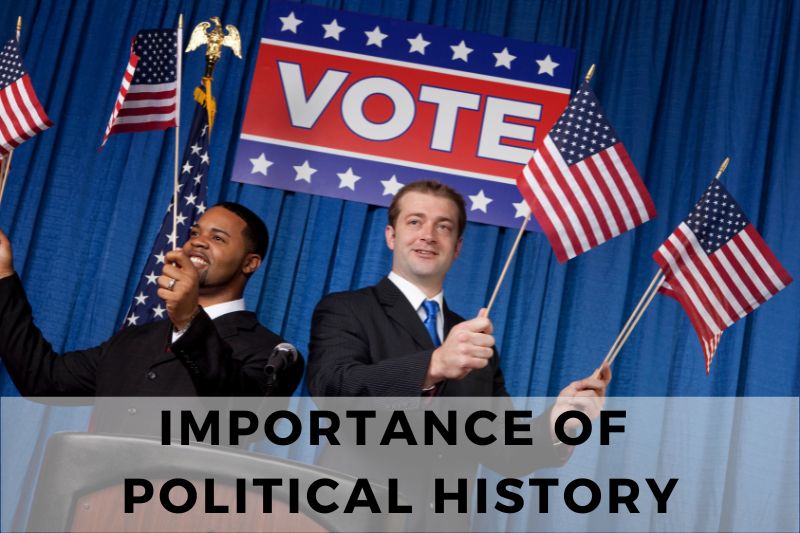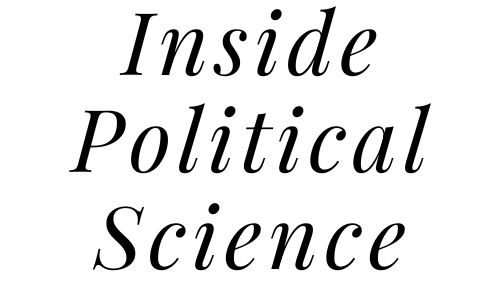
Political history plays a crucial role in understanding the dynamics that shape the world we live in today. By studying past political events, systems, and ideologies, we gain insights into the forces that have influenced societal development. Political history is not just about knowing what happened in the past, but also about learning how those events continue to affect contemporary issues.
It helps individuals, leaders, and societies to better understand the present and navigate future challenges. In this article, we will explore why the study and awareness of political history is so important and how it contributes to a well-informed, critical, and engaged society.
Reasons Why the Study and Awareness of Political History is So Important
The study of political history is essential for understanding the complexities of human society. It provides valuable lessons and insights that contribute to better decision-making, a more informed citizenry, and a healthier democracy. Below are the key reasons why political history is so important:
#1. Understanding the Origins of Political Systems
Political systems do not emerge in a vacuum. They evolve over time, shaped by past decisions, societal needs, and historical events. By understanding the origins of political systems, we can better appreciate how different systems, such as democracy, monarchy, or authoritarianism, came into existence. This knowledge helps us recognize the underlying principles that continue to influence governance today, offering a clearer perspective on political structures in our current world.
#2. Learning from Past Mistakes
One of the most significant benefits of studying political history is the ability to learn from past mistakes. History is filled with instances where poor political decisions led to wars, social unrest, and economic decline. By analyzing these errors, we can avoid repeating them, ensuring that similar missteps do not occur in the future. This reflection on the past provides valuable lessons for modern policymakers and leaders.
#3. Shaping Cultural and National Identity
Political history plays a pivotal role in shaping cultural and national identities. The events of the past, such as revolutions, wars, and treaties, often define the cultural and political landscape of nations. Understanding these events helps individuals connect with their national identity, fostering a sense of pride, unity, and belonging. Political history provides the context for national myths, symbols, and narratives that define a society’s values.
#4. Guiding Contemporary Political Decision-Making
Political history offers a framework for understanding contemporary political decisions. Leaders who are informed by the lessons of the past are better equipped to navigate current political challenges. For example, historical knowledge of diplomatic relations, conflicts, and treaties can inform present-day foreign policy. Additionally, understanding the evolution of domestic policies enables leaders to make more informed choices about governance and reform.
#5. Educating Citizens
A well-rounded education in political history is essential for an informed electorate. Citizens who understand the historical context of political events and decisions are better able to participate in democratic processes. They can critically assess candidates, policies, and political movements, making them more active and engaged participants in democracy. Political history equips individuals with the knowledge needed to make informed choices and hold leaders accountable.
#6. Understanding Social and Political Movements
Political history helps us understand the origins and impact of social and political movements. Whether it’s the civil rights movement, feminist waves, or labor revolutions, political history allows us to trace the rise of these movements and their influence on societal change. It highlights the struggles, triumphs, and failures of activists, offering valuable lessons for future movements that aim to challenge injustice and bring about reform.
#7. Providing a Context for International Relations
Political history provides the necessary context for understanding international relations. Diplomatic agreements, conflicts, and alliances are shaped by historical events, and these events often continue to influence global politics. A thorough understanding of political history helps to explain why countries act the way they do on the world stage, offering insights into international tensions, trade agreements, and peace negotiations.
#8. Fostering Critical Thinking
The study of political history encourages critical thinking. It challenges individuals to assess the motivations behind political actions, analyze the outcomes of decisions, and consider alternative courses of action. By studying historical events, we learn to question established narratives and think critically about political issues. This skill is vital for navigating the complexities of modern politics and making informed decisions.
#9. Preventing Authoritarianism
One of the most significant threats to democratic societies is the rise of authoritarianism. Political history provides valuable lessons on how authoritarian regimes come to power, how they operate, and the dangers they pose to civil liberties and democracy. By studying historical examples of authoritarianism, societies can recognize the warning signs and take action to prevent such regimes from taking hold.
#10. Providing a Framework for Understanding Current Politics
Understanding political history is crucial for making sense of current political events. Without a knowledge of the past, it is difficult to understand why certain issues are so contentious or why particular political movements arise. Political history provides the context for current political debates, offering insights into why certain policies are pursued and what the potential consequences may be.
#11. Encouraging Accountability in Leadership
Political history encourages accountability in leadership by demonstrating the long-term consequences of leadership decisions. By examining the successes and failures of past leaders, citizens and political institutions can hold current leaders to a higher standard. Political history teaches that leaders are accountable to the people and that their actions have lasting effects on society and the world.
#12. Inspiring Future Generations
Finally, political history serves as a source of inspiration for future generations. The struggles, achievements, and lessons of past political leaders and movements can inspire individuals to engage in political action and work towards a better future. Political history highlights the power of collective action and the potential for change, motivating new generations to continue the fight for justice, equality, and freedom.
Closing Thoughts
The study and awareness of political history are fundamental to building a more informed, engaged, and accountable society. By understanding the origins of political systems, learning from past mistakes, and shaping our cultural and national identity, we gain the tools needed to navigate contemporary political landscapes. Political history also provides valuable insights for decision-making, both domestically and internationally, fostering critical thinking, preventing authoritarianism, and inspiring future generations.
